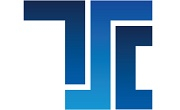Prices

February 20, 2022
Analysts: New EAF Capacity Will Make Scrap “a Precious Metal”
Written by Tim Triplett
Ferrous scrap has been described as “the new precious metal,” as mills all over the world invest in scrap-fed electric arc furnaces as a means of lowering harmful greenhouse gas emissions. Indeed, prime scrap may prove to be even more rare and prized than most realize.
![]()
In the United States alone, producers will add 5.3 million tons of EAF capacity this year and another 6 million tons in the next two years. Thus, demand for ferrous scrap, especially prime grades, is growing fast, said industry analyst Paul Lowrey, founder of Pittsburgh-based Steel Research Associates, in remarks during the Tampa Steel Conference on Wednesday.
Lowrey estimates that about 16 million tons of EAF capacity will come online in the next five years, 80% of it to produce flat rolled steel. Unlike long products such as rebar, flat rolled requires the highest-quality metallics to achieve a flawless surface.
As Lowrey explained, there are only four major sources of ferrous scrap: home scrap from the mills, prompt scrap from manufacturing operations such as automotive stamping plants, scrap substitutes like direct-reduced and hot-briquetted iron and pig iron, and obsolete grades collected from the aftermarket by scrap dealers.
Home scrap is the highest quality, but also the scarcest, as mills have reduced their yield losses by 75% over the past 50 years. Nearly all the metal they produce makes it into the marketplace in one form or another.
Prompt scrap, a byproduct of the manufacturing process, is also very high quality because it can be immediately retrieved and returned to the mill for remelting without being comingled with other materials.
Demand for scrap substitutes such as DRI and HBI is growing, but sources of supply are limited. Likewise, pig iron is more highly valued but not widely produced in the U.S., and imports are subject to carbon-emission concerns.
Obsolete materials, like junked cars and old appliances, generally end up as shredded scrap. Because of impurities, such as copper, that are difficult to remove from the mix, obsoletes are best suited for lower-quality applications such as rebar.
As one of the largest consumer societies on the planet, the U.S. produces a lot of ferrous scrap. Some 20 million tons is exported every year to meet demand from steel mills in Turkey, South America and other regions.
So why not just ban scrap exports to solve the future shortage in the U.S.? That won’t address the problem, Lowrey said. “Prime exports are just 1.5% of the 20 million tons – a drop in the bucket compared with prime demand,” Lowrey said. “If we curtail scrap exports, it will help the rebar mills, but it’s not going to help the flat rolled mills.”
Prime scrap comes from just two sources: home scrap from the mills and prompt scrap from manufacturers such as automakers. “Home scrap is minimal, prompt scrap is dependent on our ability to reshore manufacturing, and scrap substitutes are not widely available for import. So we have to find other sources of high-quality metallics,” Lowrey said.
The growing pressure to decarbonize steelmaking is prompting Canada and western European nations to build new EAF mills, too. So the competition for prime scrap on the global market will only get more heated – and scrap costs more expensive.
“What is the prime scrap solution? There is no silver bullet,” Lowrey warned. “I think this is a structural change in scrap prices. I don’t think it’s temporary.”
Wolfe Research Managing Director Timna Tanners, also a panelist at the Tampa Steel Conference, echoed Lowrey’s concerns. “We believe scrap prices will be stronger for longer as there is more scrap demand and there are no additional sources of scrap anywhere,” she said. But there is a limit to how high scrap prices can go up, she said, “so we are going to have to see pig iron fill the void.”
With a few exceptions, mills seem to be taking what Tanners calls a “Field of Dreams approach” to adding EAF production. “They think, ‘If we build these mills, scrap will come.’” Actually, scrap will be tight, prices will go up and EAF profitability will go down, Tanners said. “It’s going to be inflationary for U.S. minimills.”
With millions of tons of new steelmaking capacity coming online, even if all scrap exports stayed domestic, scrap supplies would fall short of demand. “So we will have to import pig iron, which will be dirty [in terms of emissions], until there is a new solution,” she said.
Importing pig iron may become more difficult for political reasons. Tensions between Russia and Ukraine – major sources of pig iron imports – make them questionable as reliable sources of supply, at least in the near term.
By Tim Triplett, Tim@SteelMarketUpdate.com







